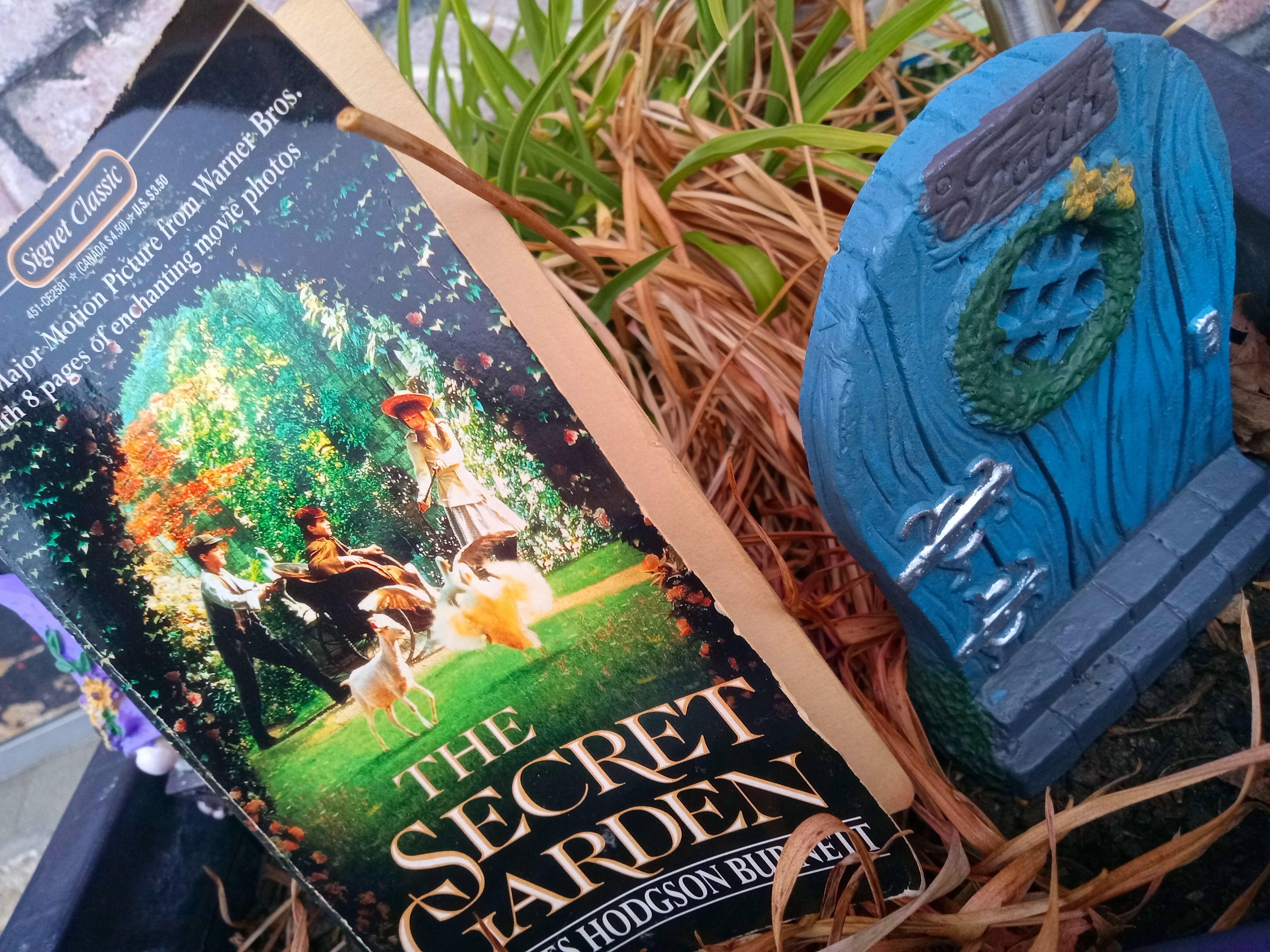
Home | Classic Literature | Kayak Time | Hiking Time | Haiku | Drawing + | Photography | Music


|
On 15 April 2025 I finished reading The Secret Garden by Frances Hodgson Burnett. I read the Signet Classics publication of it. The Secret Garden was first published in 1911. It takes place in Yorkshire England on the Moors. I don't know about you, but I did not come from a book family. Neither of my parents were readers when I was growing up so books really weren't read to me. So believe it or not, this was, I believe, my first exposure to The Secret Garden. So, a little late to the game. I am guessing that most who read this will have had perhaps multiple exposures to it either in book, play or movie form. I have the DVD of it but have not watched it yet because my MO is to read the classic first, and only then after, watch the movie of it. So if you have completed all three: book, theatre, movie. . .kudos to YOU! Being a kids book this obviously is a very easy read compared to the various other classics I have read. That was a nice break actually; a nice easy read. And a quick read too. I started this one just after I finished Doctor Zhivago on 7 April 2025. The printing of it I read was about 169 pages. This book will appeal to those who like feel good endings and a lot of character development (in terms of growth or change over time) as it is the emphasis with regard to all three of the central characters. Mistress Mary who starts out "quite contrary." Back to the above, to show you how sheltered I was, I learned just through reading this book that 'mary mary quite contrary" emminated from this book (it seems). You, on the other hand, probably knew that. As a nature lover, it is absolutely no surprise on how being in nature helps one's mood. If you haven't taken a nature walk, I hope you will try it soon. However, keep that cell phone in your pocket or backpack when you do and actually enjoy being in, seeing and listening to nature. Otherwise you will miss the entire "magic" of it. Is that the only magic in this book? Or is there an invisible hand of the late Mrs. Craven working to have brought about all this character development? Destiny? Fate? or God? I suppose that is up to any individual readers' interpretation of it and what they want to see in it. The book is also an exposition on parenting, the effects of neglect or, perhaps even worse, spoiling your child and its effects not only on them but everyone around them. It is a book on physical disabilities and illness both physical and mental. It is a book on the effects of the mind and how thoughts can have profound effects not only on our disposition and mood and our interactions with others, but also upon our physical bodies. It seems from reading this that the idea of psychosomatic conditions was recently "discovered." I don't know and I'm not going to look but it seemed so from reading it. It is also an exposition on how one deals with grief following the loss of a loved one and the co-parent of your child. That obviously is nothing I can relate to but surely people deal with that in different ways with differing impacts on their children. This book placed both of the two central characters Mary and Colin in the extremes in each of their cases as far as how horrible their characters were and then moderated them over time as they interacted with eachother and nature. Archibald Craven, the father's big character shift occured while he was dwelling in nature as well. While he was there I was reminded of the classic The Picture of Dorian Gray. The moor boy Dickon with all his animals hanging about him, on him, in his pocket, reminded me of Count Fosco of in the Wilkie Collins' classic The Woman in White. Being of Buddhist bendings along with being a nature lover (but not a gardener) I probably have a heightened appreciation for some of the 'messages' of this book; to wit, how one's thoughts really can impact one's life and even health. Buddhism centers a great deal on that idea and the idea of mindfulness and being able to control those thoughts. At one point Colin, thought he would live forever. That of course is a common thought of all kids really; they never think of mortality etc. However, given his health he was robbed of that very beneficial ignorance as a child. Good thing his uncle the Doctor Craven was not the Ebaneezer of Kidnapped. . . for surely he would have off'd him to get the inheritance, eh? During the book I had thought that there was going to be a bit about keeping secrets and being careful who or how many people you tell them to. In the book I was thinking, man kids, you're telling everyone and you are going to ruin it. But I was wrong. It was a very enjoyable light read. Now to watch the movie and keep an eye out for a live theatre play of it somewhere. Next up to read is "The Count of Monte Cristo" by Alexandre Dumas. Join me? I will leave you with a quote from The Secret Garden: Timeless! |
  |